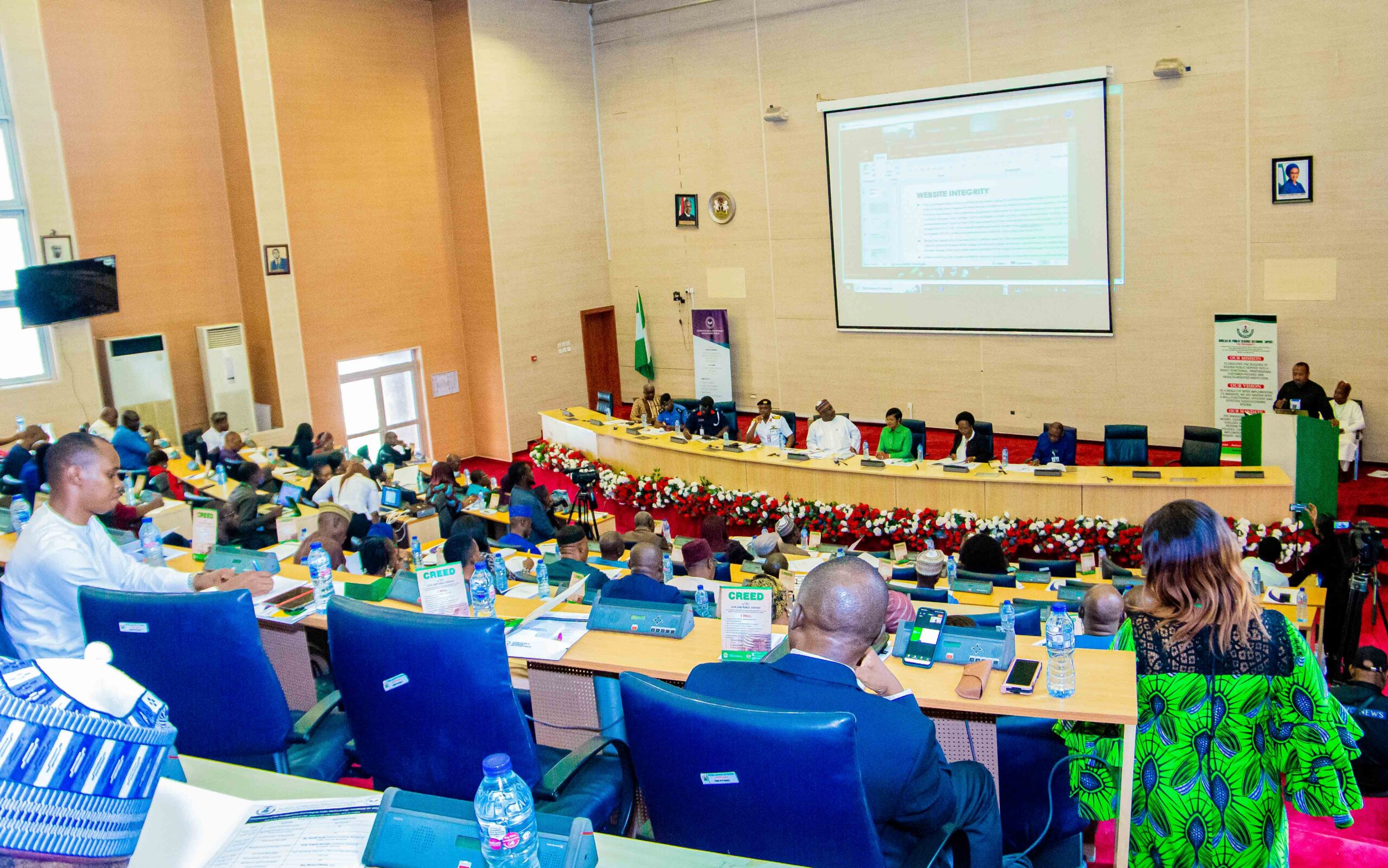The Center for Fiscal Transparency and Integrity Watch (CeFTIW) is set to assess compliance of local government alongside states and federal ministries, departments and agencies (MDAs) in the 2023 Transparency and Integrity Index (TII) as a means of promoting accountability and transparency in line with extant laws at subnational levels.
The TII developed by the Center in 2021 is a technological solution that promotes transparency in governance by closely monitoring the publication of vital information that should rightfully be in the public domain, particularly through the websites and portals of public institutions in line with the principles of proactive disclosure.
Speaking at the presentation which was done in partnership with the Bureau of Public Service Reforms (BPSR), the Center’s Board of Trustees Chairman, Amb. Angela Nworgu noted that the variables for assessment were carefully designed to align with applicable laws and statutory instrument, ensuring a robust and comprehensive assessment process.
She added, “for the upcoming 2023 assessment, we have identified six thematic areas of focus for government institutions at the national, sub-national and local government level. These variables include Website Integrity; Fiscal Transparency; Open Procurement; Anti-Corruption; Citizens Engagement; and Human Resources and Inclusion.”
While presenting the methodology, the Center’s Executive Director, Umar Yakubu however noted that the state and local government assessments would exclude the “human resources and inclusion” variable since there are not established laws backing the issue of human resources and inclusion at individual states, and across the different 774 local government in the federation.
The Center’s Head of Programs, Tamara Berepubo also noted that the presentation of the TII methodology before assessment is aimed at equipping public institutions with knowledge of tools and variables so they can improve their performances in the year’s assessment. She added that a culture of proactive disclosure would improve transparency in governance, and ultimately reduce corruption in the nation’s public service.
In his welcome remarks, the Director-General of the BPSR, Mr. Arabi Dasuki commended the Center for developing the TII as a means of entrenching accountability and good governance. He said that government’s quest for citizens’ greater responsiveness, better use of public resources and development has heightened the need for transparency of public revenues.
While pointing out that government has promulgated several laws that should promote transparency and accountable use of public resources, he decried that the “level of sensitization and compliance still remains low across MDAs, and this is why the Bureau has decided to partner with Civil Organizations to increase the level of awareness, before the release of the next Transparency and Integrity Index assessment of MDAs by September, 2023.”
He encouraged non-state actors to develop initiatives and support government as exemplified by the Center for a virile and sustainable economy for all Nigerians.
The methodology handbook is presented every year as a detailed guide to the variables and scoring criteria that would be used in the assessment of public institutions’ compliance to fiscal transparency and accountability laws and other commitments.

